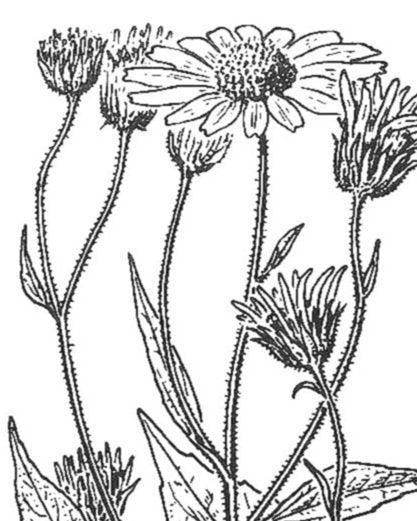Eat More Perennials, Be More Perennial - Jerusalem Artichokes or Sunchokes, Wild Sunflower (Helianthus Tuberosus)

A friend from the Ohio Ecological Food and Farm Association awakened me to the importance of eating perennial plants, as generally, they require far fewer inputs with far greater reward. They don’t require greenhouses to maintain or heat for starter plants. They require less water and fertilizer due to their deep roots, and they definitely require far fewer labor hours to maintain. H. tuberosus is a perennial plant that we could all afford to add to our diets.
Helianthus tuberosus, the Jerusalem artichoke or sun choke is plant that is native not only to West Virginia, but also to Lewis County. Its common name “Jerusalem artichoke” is an adulteration of the French word “girasol,” which means sunflower. [1]
Although the plants are beautiful themselves with pretty yellow daisy-like flowers, and are capable of providing a seasonal privacy fence in their first year of growth, H. tuberosus is most commonly cultivated for its fleshy tubers that have the texture of water chestnuts, the nutty flavor of artichoke hearts, and the satisfying starchiness of potatoes without the glycemic load.
Propagating Jerusalem artichokes is almost too easy. These tubers grow so prolifically that they can be invasive, especially if they are not harvested on annual basis. If you do decide you need more of these, simply harvest them in late winter, break apart the tubers and spread them out, planting each ping-pong-ball-sized tuber about 8-10” apart. The excerpt below from The American Horticulture society details the propagation process. Looser soil will produce many more tubers that are easier to harvest, but this plant will grow in just about any conditions, although it does perform better in temperate zones. If you have experience growing these in warmer climates, I would love to know about how H. tuberosus has produced for you.

Recipes
Warm Artichoke, Blood Orange & Feta Salad
Pork, Cider & Jerusalem Artichoke Stew
A Warning from the Modern Farmer
“The very thing that makes Jerusalem artichokes delicious and healthy is also the source of their unfortunate intestinal effects: inulin, an unusual type of carbohydrate that has recently become a trendy prebiotic supplement for gut health. Plants naturally containing inulin – and Jerusalem artichokes have a higher percentage of inulin by weight than almost any other vegetable – are naturally sweet and satisfying, yet have almost no functional calories since humans can’t digest inulin. But when enough inulin reaches the lower part of the intestinal tract, bacteria gobble it up and produce methane – which explains the brutally accurate nickname “Jerusalem fartichokes.”[3] - The Modern Farmer






[1] Strausbaugh, P. D., Core, L., & Lunk, W. L. (1978). Flora of West Virginia. Adfo Books.
[2] Toogood, A. (1999). American Horticultural Society Plant Propagation: The Fully Illustrated Plant-by-Plant Manual of Practical Techniques (1st American ed). DK.
[3] Lawson, K. (2018, October 19). Looking For a Sunchoke Recipe That Doesn’t Cause Gas? Try Lemon Juice. Modern Farmer. https://modernfarmer.com/2018/02/jerusalem-artichoke-sunchoke-recipe-prevents-gas
SHOP SUNCHOKES
We have SO many sunchokes we are so ready to share with you! Please check out our products. We dig these fresh daily and ship them in their own soil to preserve freshness. Plant them in a pot inside or if your ground isn’t too frozen, these can be planted outside as early as February in Zone 6. They are hardy to Zone 3.
Buy 5, 10, or 20 Jerusalem Artichokes from Smoke Camp Crafts on Amazon.com or purchase one pound, directly from us. One pound is just about 20 artichokes.
